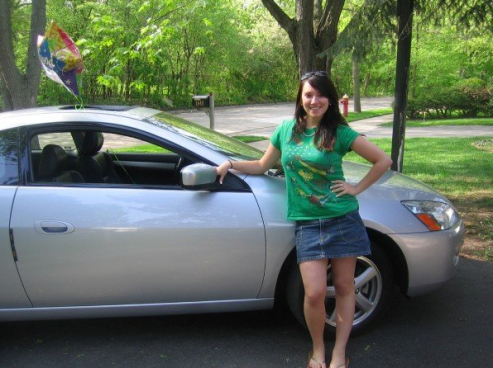5 Things to Consider Before You Buy That Big Ticket Item
I hate spending money, that's why when I decide to make a large purchase I treat it as an investment. Here are a few tips from Jon Stein, CEO of Betterment.com, a website created to help individuals investintelligently.
Before I get into the thick of it, I wanted to highlight Jon Stein's experiences within the investment world — this guy is legit. Not only is he the CEO of Betterment, but Stein is also the founder, starting the company in 2007. Jon brings a wealth of knowledge to the financial space after graduating from Harvard University and Columbia Business School.
His education may be impressive, but Jon also has experiences to match; most recently working at First Manhattan Consulting Group as a senior consultant. So when it comes to finance, this guy knows what's up.
5 Biggest Investment Mistakes: Applied to Big Purchases
Although investing is a whole different sector in the financial industry, I believe lessons can be applied all areas of finance. If you are not in the position to invest you can still learn from Jon Stein's 5 biggest investment mistakes.
1. Spending Too Much
Are you looking to buy a car, house or just an absurdly expensive purse? It doesn't matter what your big purchase is, you should not be putting yourself in major debt just to have it. Do the math! Figure out what you can afford, how long it would take you to pay off any loans and spend within your means.
I think with any big purchase it's important to budget out a maximum amount and stick to this amount. That way you will keep your future financial needs in check while satisfying your current ones.
2. Not Taking Enough Risk
This is kind of the opposite of what I said above in terms of spending, but it makes sense. When you are purchasing a big item, you don't want to underpay either. Bargain shopping works a lot better with everyday purchases, but with investments you want to get the best deal for your money.
According to Stein, "Under-investing is what happens when people fail to see the huge opportunity cost of parking money in savings," which I totally agree with.
One of my favorite examples of this is my of landlord, Joe. Joe bought up a bunch of buildings in a rundown neighborhood in Brooklyn in the early 70s for super cheap. Buying land in a poor part of town is a huge risk considering you don't know what will happen to the town. Luckily for Joe this risk turned out huge rewards as the neighborhood flourished into one of the most desired, family-friendly places to live in Brooklyn.
3. Micro-managing Investments
Although this step mainly applies to the whole "buy high, sell low" ideology it can still be applied to purchases. To avoid micro-managing your purchases i.e. returning big ticket items after realizing you have spent too much, pre-plan your purchase.
One big thing marketers constantly battle is cognitive dissonance when it comes to big purchases. Individuals who experience cognitive dissonance, or regret for spending so much, ofter return the purchase. I have had friends who have purchased new cars, only to return them later for cheaper or used models, or other friends who would purchase season passes only to end up selling tickets to certain games.
If you are going to make a big purchase you have to commit to it. Things depreciate, or you may not be able to get your full value when you return the item. I often like to pretend I have made the purchase, or even taken out a loan for it and budget out the money from my paychecks for a few months. Not only do I build up my savings for the item, but I also adjust my spending to my new budget.
4. Investing in the Wrong Things
Do you really need that new coach purse, or the 80 inch flatscreen tv? The danger with spending a large amount of money where you don't need to is not having that money for necessary items further down the line.
It's not rocket science people, don't buy things you can't afford and don't need. Work on building your savings and credit, then you can invest your money in big purchases.
5. Failure to Maintain
Anything you spend a lot of money on, whether it's a computer or a car, you will need to take care of it. Failure to maintain your big purchases will expose them to wear and tear at a quicker pace.Anyone who has had to fork over money for any type of repair can answer to the unwanted expenses.
To apply these tips or learn more about investing visit Betterment.com.


